Art and Mental Health Interview with Multidisciplinary Creative J. Moore
"Art helps us to share thoughts for which we don't always have words, so we can communicate more about where we are at, and share concepts that are very complex."
Plus a Crochet Saved My Life Excerpt about tactile healing ….
I know J. Moore from
and as you can see from the above one of the things she and I have in common is a love of rescue animals. In fact, we’re in the early stages of collaborating on a piece around that, which I’m really excited to see come about. But first, I got the opportunity to interview her about her creative side. She shares what she makes in the Sage Alley Arts section of her Substack. And today she shares how her creativity intersects with her mental health.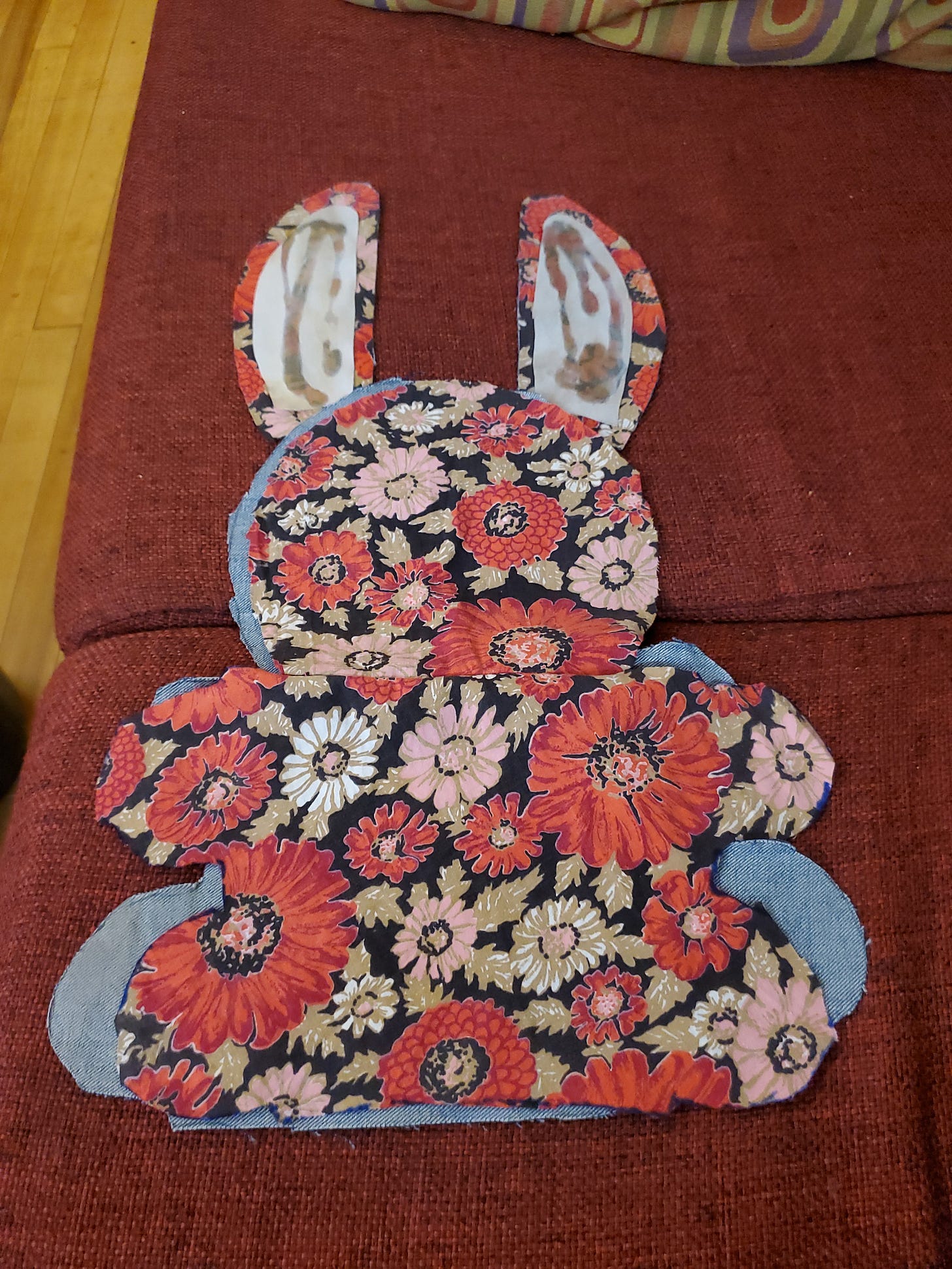
Before we dig into the rich stuff, what's the first thing that you would like us to know about you by way of introduction?
I'm largely a self-taught artist. I did have some training in my pre-college years, but after that, I've just done the thing. I look things up when I need to and take classes occasionally.
“I’ve just done the thing.” I love that.
What kind of art do you create?
I've been creating since I was very little. I paint, I used to draw (am planning to pick it back up,) I hand sew, I make jewelry, and I do a lot of collage, montage, mixed media stuff. I'm also a writer and photographer. I do a lot!
She really does do a lot. Learn more about all of this
in her Sage Alley Arts intro:
What would you like to share with us about your own experience of mental health?
I suffer from depression (diagnosed) and as I've gotten older, I've developed anxiety. Neither condition is severe, but they do affect my functioning sometimes.
Everyone’s mental health experiences is unique. What are the prevalent symptoms for you?
I suffer from sleep issues, chronic pain, and chronic fatigue. All of those symptoms make it very difficult to get motivated and to focus. If I create at all while in a flare up, my sessions are shorter, and I may well spend more time just messing with my materials than actually making anything.
I also tend to catastrophize and get down on myself. You probably experience this, too: self sabotage. It can be pretty awful. Luckily, it never lasts more than a day or two.
We are all artists with mental health experiences
I believe that we each exist on a spectrum of creativity as well as a spectrum of health, that we move back and forth along those spectrums throughout time but basically have a baseline and a range, and that those two spectrums intersect in unique and interesting ways for each of us. It’s that - the intersection of the two spectrums - that interests me.
In what ways have mental health symptoms affected/impacted/altered the content of your art?
I fully believe that I do morbid art because of my depression. I've been fascinated with the darker side of our world since I was a child.
On the flip side, I enjoy color. Color makes me happy. It's two sides of the same coin, I think, really. The two aesthetics keep me in balance.
That makes a lot of sense to me and I think hints at something about why we continue creating in spite of the fact that mental health symptoms sometimes make it challenging … because there’s something on the flip side of it that makes it cathartic. And I think that creating morbid art also brings darkness into the light in a way that makes it more manageable.
How has art been therapeutic for you?
I'm much calmer and happier after a good studio session. Just me, alone with my projects and materials. It's really comforting.
In what ways have mental health symptoms affected/impacted/altered the process of your art?
I sometimes can't or don't follow through, though that has gotten better recently. I've been working on following through consciously, because I've always been that way.
At other times, I go for long periods where I'm not creating or writing anything, because I can't muster the motivation.
That’s one I can definitely relate to, having been unable to create at many times due to depression/ fatigue. In fact, this is probably the number one issue that comes up for people with depression - you want to create and there are a million reasons that depression makes it feel impossible.
In what ways have mental health symptoms impacted your creative medium?
I'm very tactile. Working with materials I can touch and sort through is comforting to me.
Ooh, I love hearing that. It makes a lot of sense to me as someone who has found healing in crochet.
Can you share a little more about that?
I think my very favorite things to touch and handle are my beads, charms, and so on. I have a LOT, and I use various materials (mostly glass and stone.) Just the variety of textures and colors is very comforting, and sorting through these things sparks all kinds of ideas. It's the same with fabric. I just love the planning and design phase of a project, where I'm exploring possibilities. It's like a conversation, really.
In what ways have mental health symptoms impacted your self-perception / identity as an artist?
I don't have a lot of faith in my competency. I'm always surprised when I sell something or receive public praise.
Self-esteem challenges that impede self-promotion is another common thing in depression. And anxiety exacerbates that.
How has that impacted your business?
I have a very hard time promoting my business and getting out to do on the ground shows. It's also really hard for me to approach businesses about displaying my art and photography.
You also live with a disability, which I understand has impacted your business, correct?
Quite simply, it takes me longer to complete things, and it limits my options for shows. I used to do a LOT of art and craft shows with friends, but now that I'm doing it alone, I really can't do too many outdoor shows. Handling putting up and breaking down a tent is too much for me, physically, and I'm not going to drag my husband out to help. He's got his own stuff going on. (If he offered, that's different.)
So, I look for indoor shows, but that's a whole other minefield. I could write an article. LOL!
I hope you do write an article on that one day!!
In what ways has creating art hindered or harmed your mental health?
It hasn't, really.
Maybe I can rephrase that. … Perhaps you don't feel harmed, but art feels complicated (not entirely therapeutic all of the time) for you - what would you like to share about that?
Some pieces are harder to complete, psychologically, than others. I have not personally experienced this, though.
That makes sense. Since you mentioned what others have experienced …
In what ways have you seen art help others?
It gets people seen and can draw attention to their causes. It's a good way to fundraise. It makes OTHER people happy, which can be very healing for the person sharing the art. It's therapeutic.
In your own words, what do you think is the relationship between art and mental health?
Art helps us to share thoughts for which we don't always have words, so we can communicate more about where we are at, and share concepts that are very complex. It's also a relief valve, because we ARE expressing those deeper things.
Connect with J. Moore on Instagram: jeninmass and Facebook: sagealleyarts
Visit her on Substack. Some of the pieces I’ve loved:
A tangent I thought of when Jennifer shared the thoughts on tactile creativity:
An excerpt from my book Crochet Saved My Life …
“When you crochet, you feel the cool smoothness of the crochet hook as it plays against the silky warmth of the yarn. Yarns can have different feelings to the fingers (contrast the plush softness of a baby alpaca with a slightly rougher lamb’s wool, for example) but in general yarn is soft to the touch.
I have found that touch is a particularly, well… touchy, subject for a lot of people suffering from depression. There is a lot of confusion in the depressed body. It yearns to be touched nicely and softly, yearns for hugs and an arm around the shoulder. And yet, for many complicated reasons, human touch is sometimes too difficult for the depressed person to bear. A touch, even a gentle touch, from someone else can provoke fear, incite tears and cause a whirlwind of negative feelings in the body. And so in order to help yourself enjoy tactile sensation during bouts of depression it can be important to find other sources of joyful touch, sources that don’t come from other humans. That’s one of many reasons that a fuzzy pet can be a great comfort to the depressed individual. The feel of working with yarn can be one of those healing touch options, as soothing as the calming sensation of petting a cat that is purring in your lap but without the hassle of the litter box!
To this day one of my favorite treats gained from learning to crochet is the joy of touching a particularly soft, plush ball of yarn. I will go to a yarn store or into my own yarn closet and pull out a ball that just begs to be handled. I will marvel at the softness in my hands, sturdy and solid because it is rolled into a ball, and yet lusciously buttery to the fingertips. I will stroke it like it is a pet or a sleeping child or a lover, enjoying the moment completely, bringing me back to the mindfulness I learned from crochet in the first place. I keep basins filled with yarn all over my house and in them I put only the most beautiful, most touchable yarn for constant easy access to that nice feeling.”
If you read this far, perhaps you liked the work. The work does take work. It only continues with support, so please consider subscribing. My annual rate starts at $10 per year.




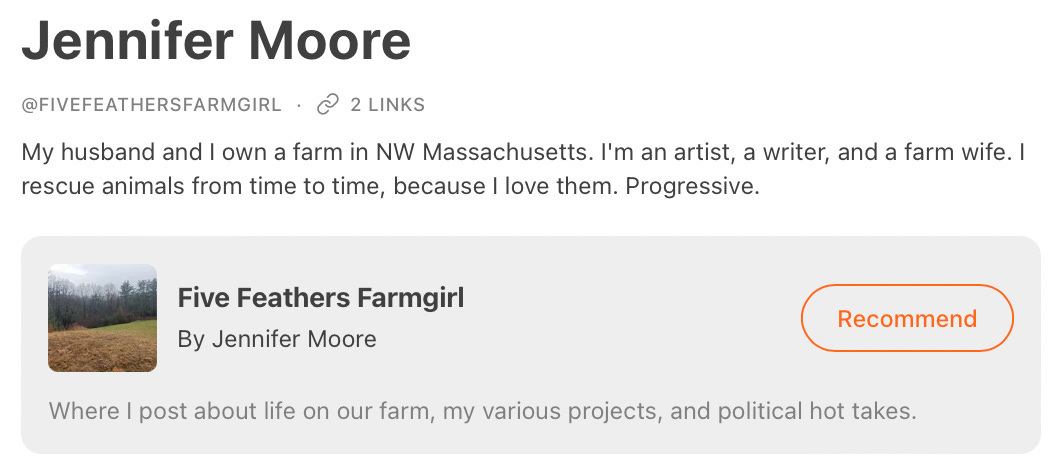


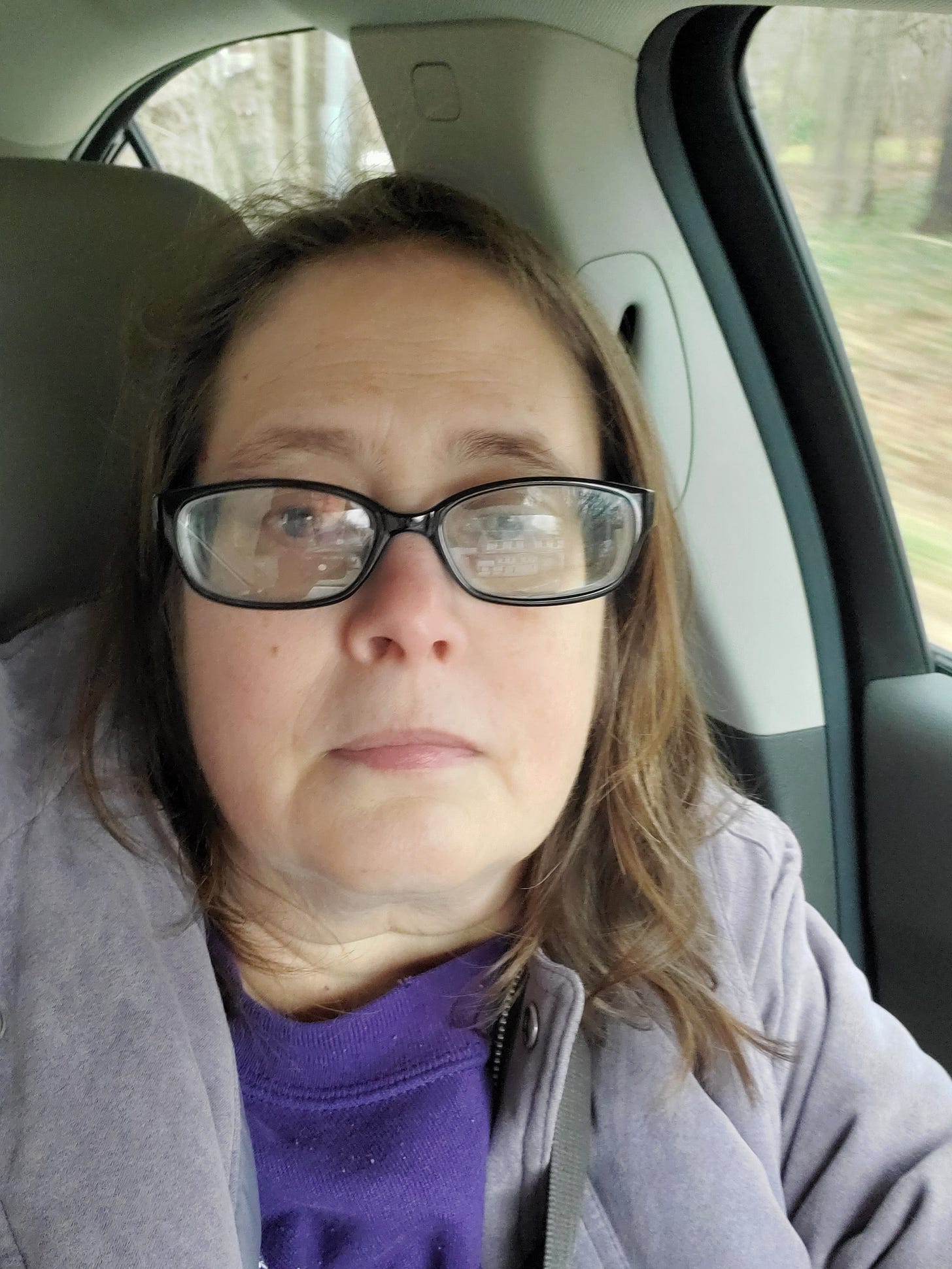
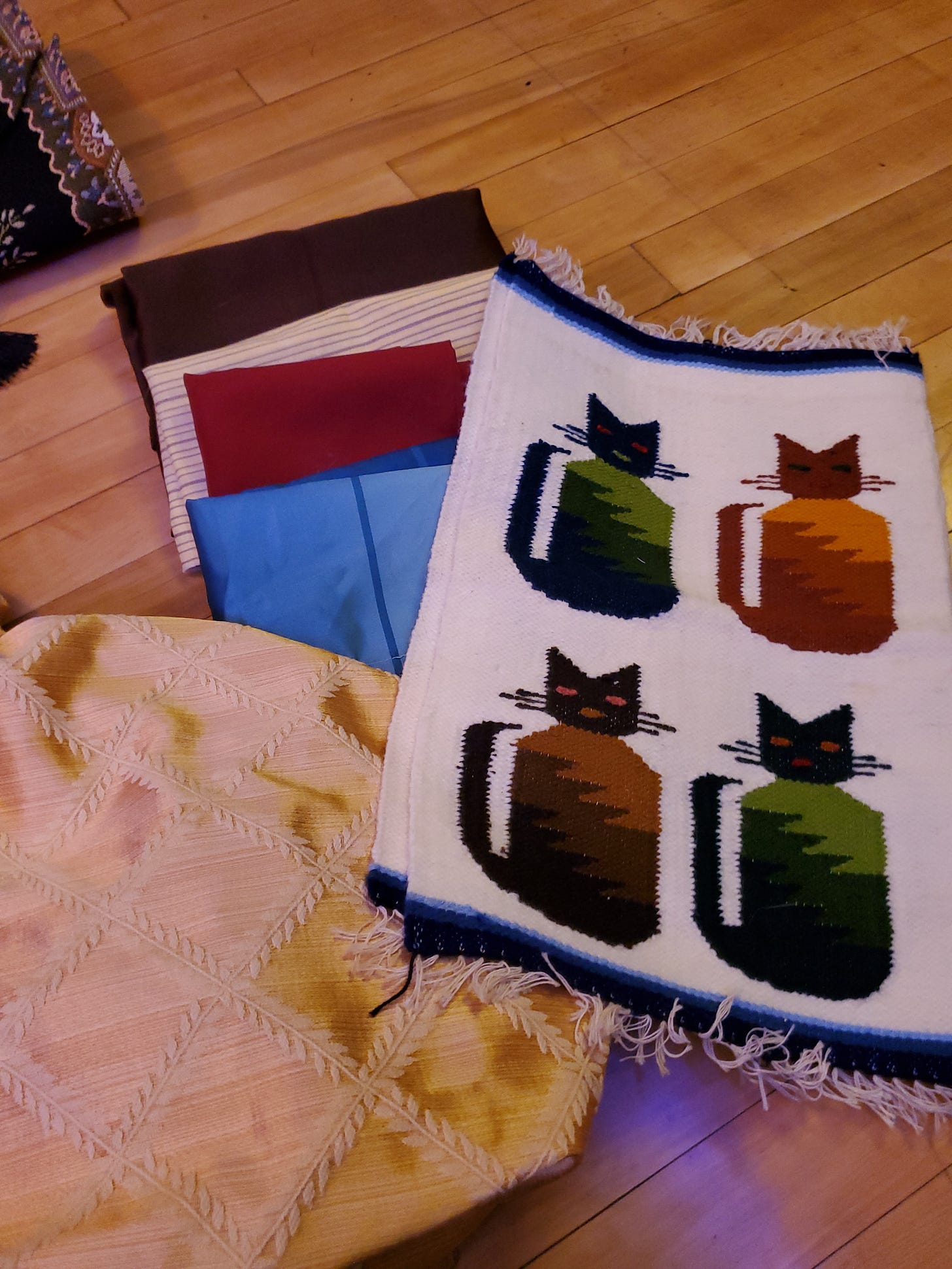
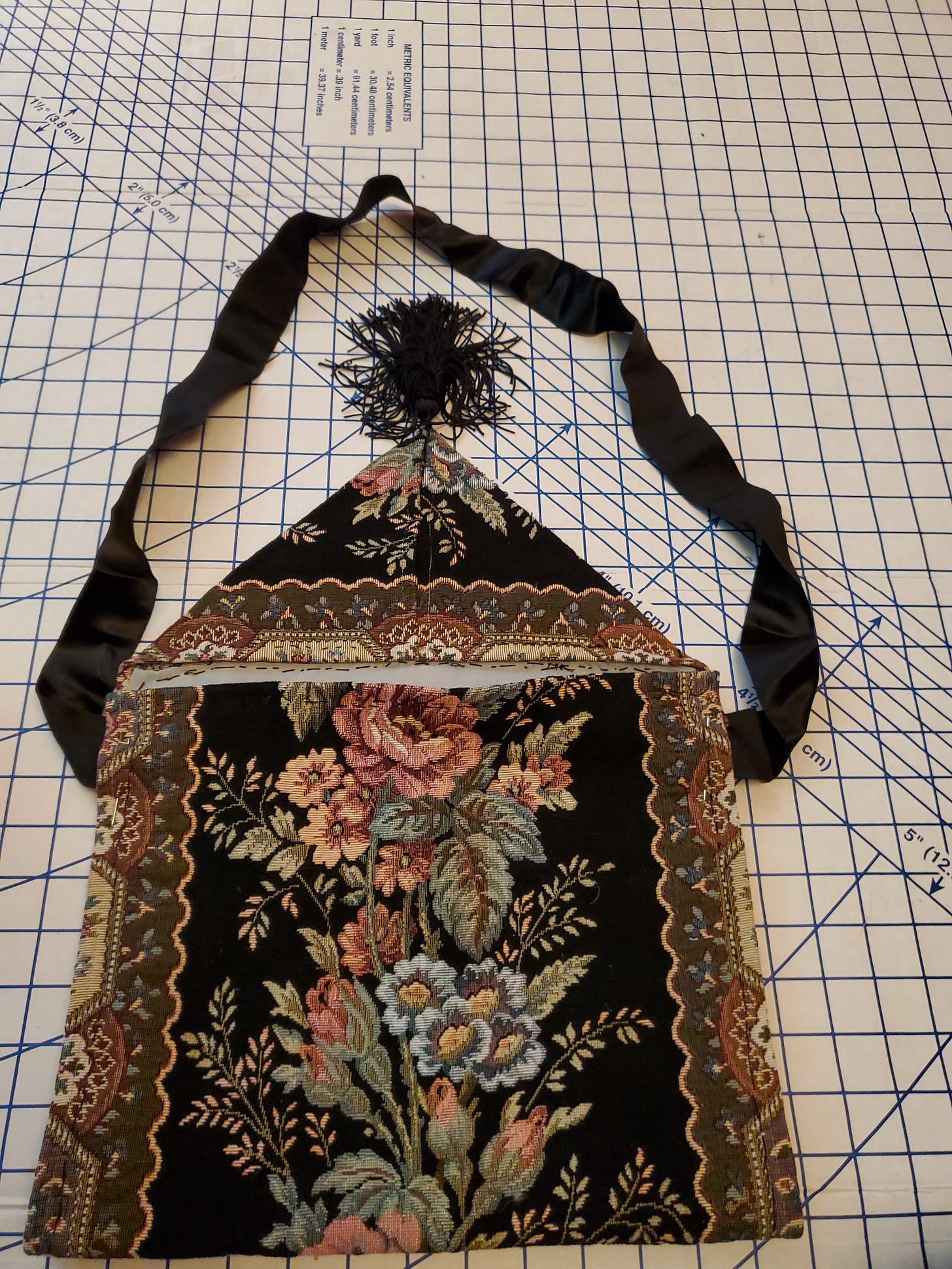



Thank you so much for doing this! It was really fun, and there is so much more I could have said! I will do that over on my Stack! 😊
Depression is so very interesting. I can relate, as a sufferer, and I see there is a spiritual dimension to the experience. I would be interested to learn more about the spiritual perspectives of sufferers.